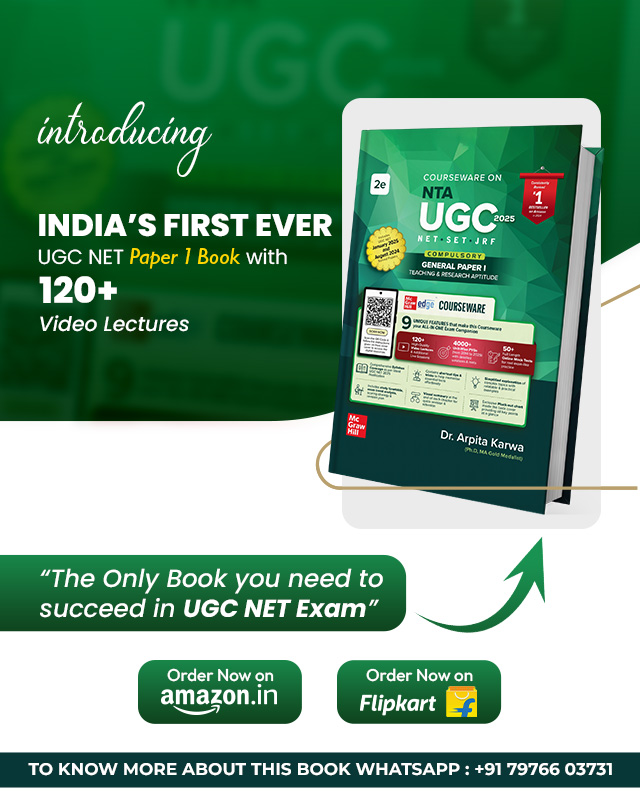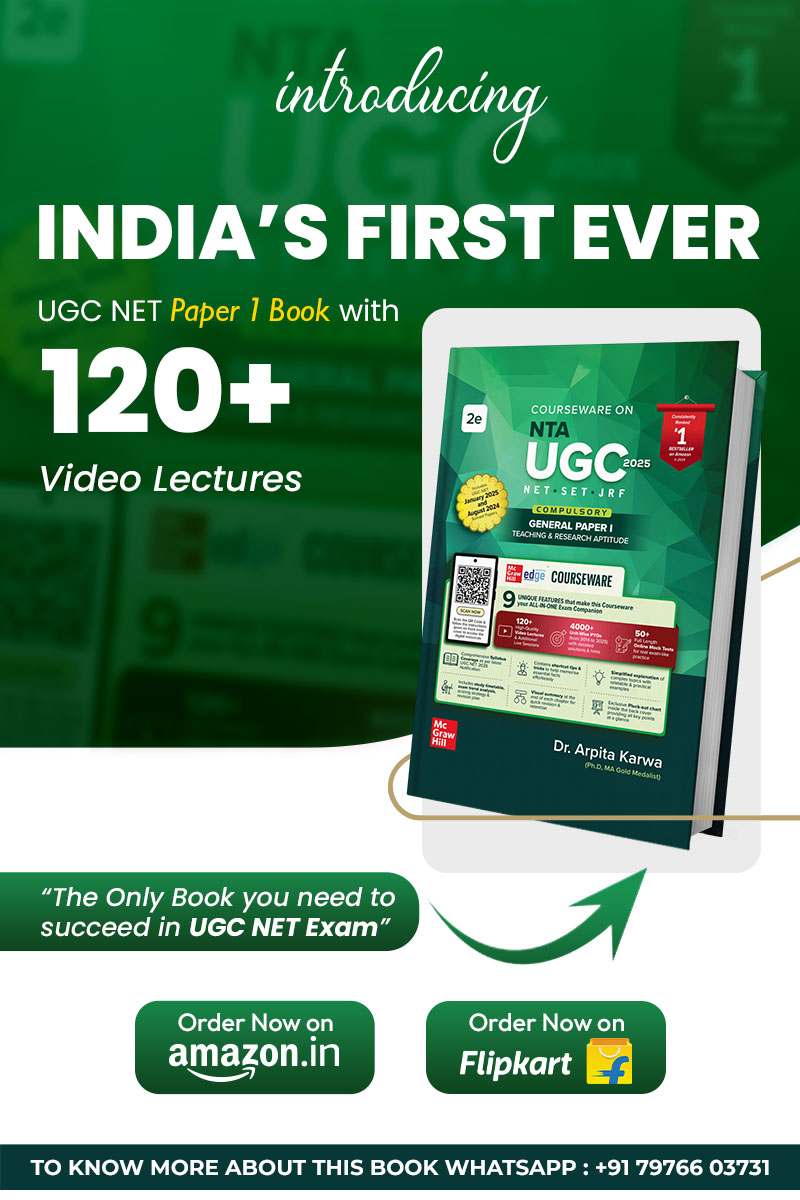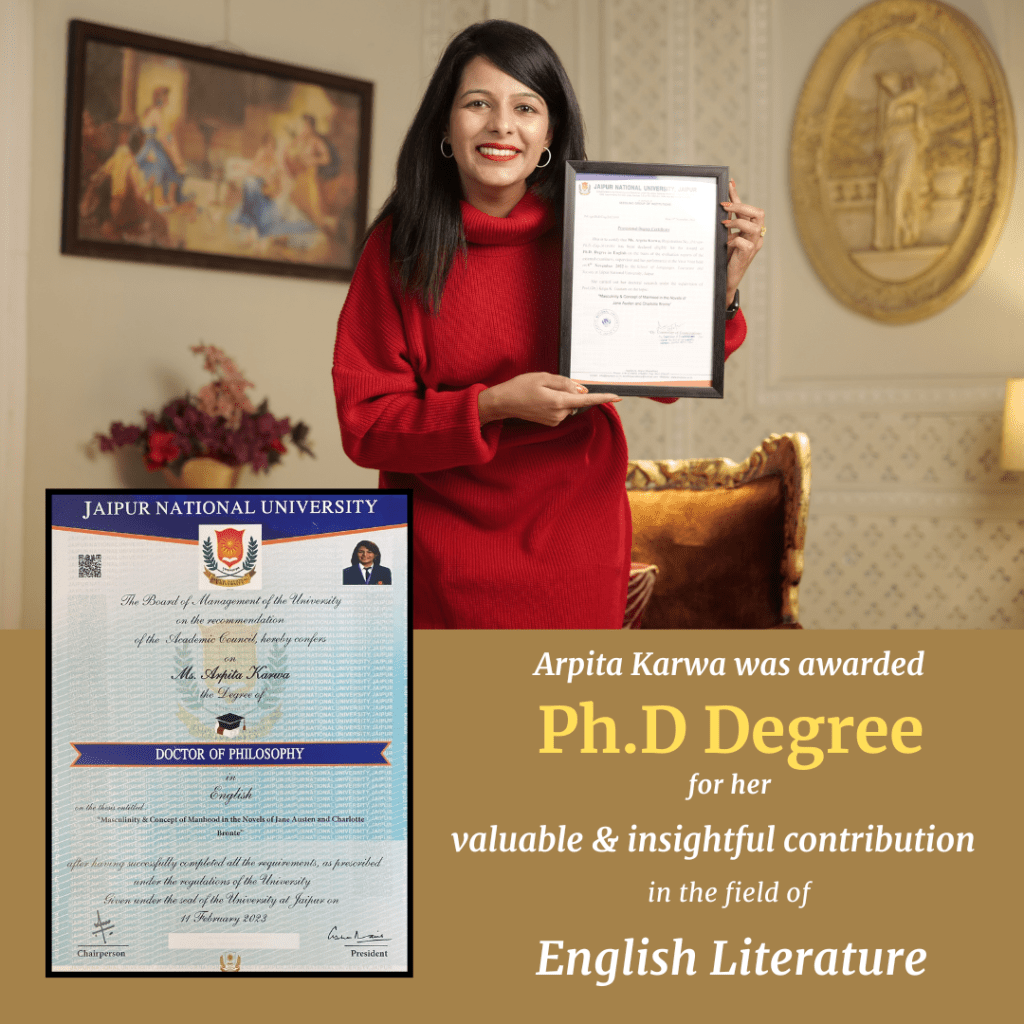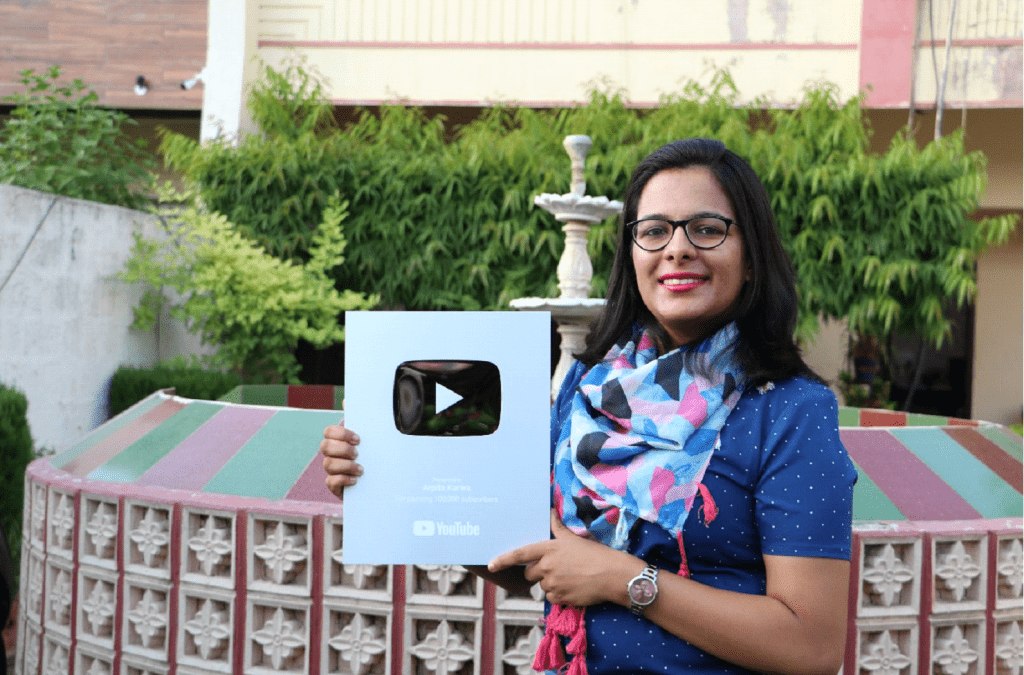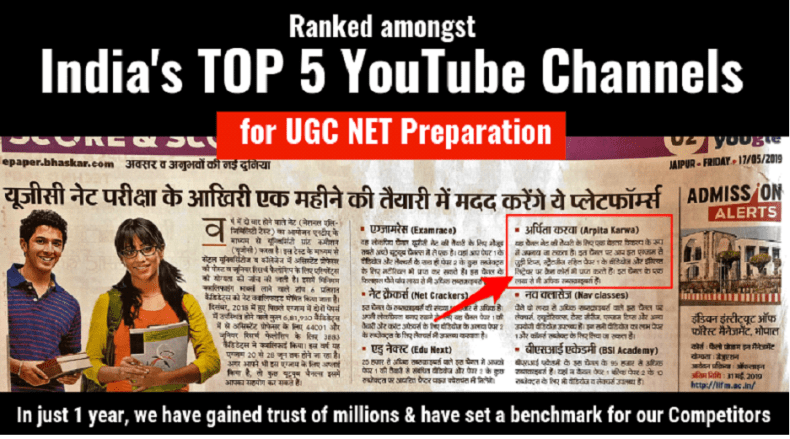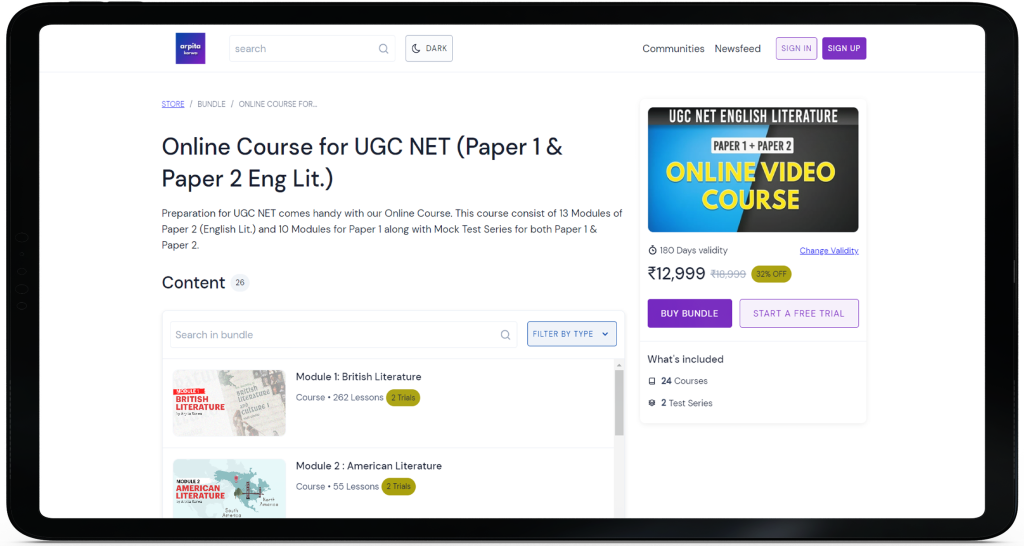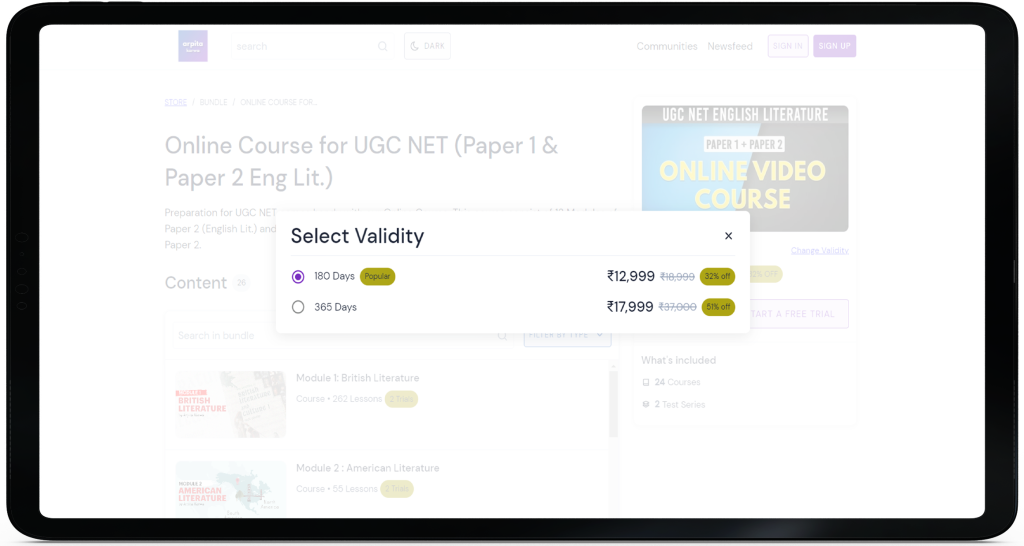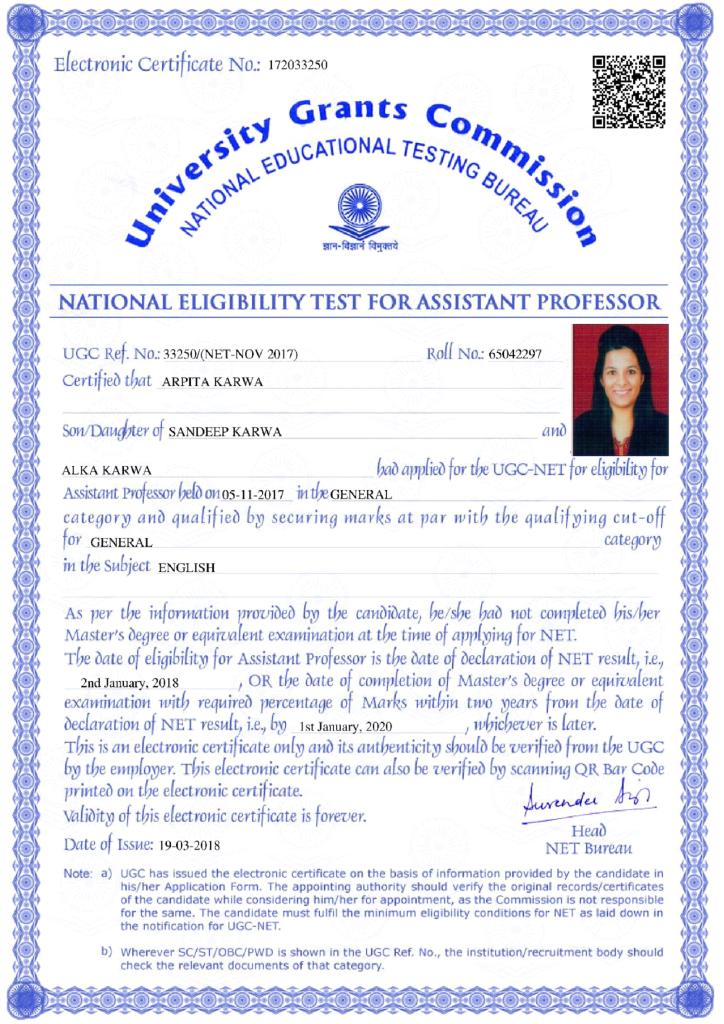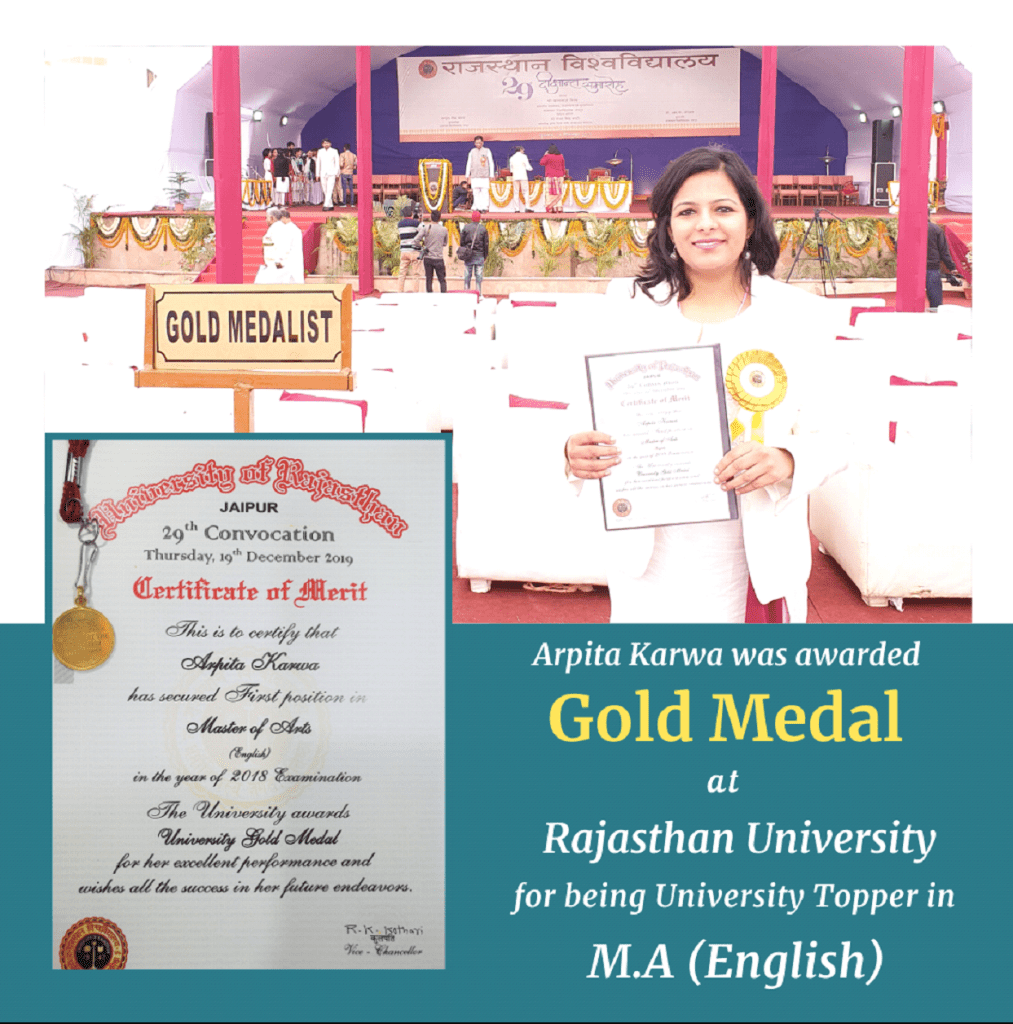Rajasthan Set 1
June 20, 2023 2023-12-18 16:12Rajasthan Set 1
Rajasthan Set 1
Q.1) Read the poem carefully and answer the Questions that follow:
She has deliberately left
Her comb here Its teeth are Her fingers in my childhood hair
Somewhere, some stories memorized
Somehow are tangled there in It smells of her armpit
clinging Long, long ago
To her under a rustic night, long
Its icicled silence – all wintered Combs a motherly warmth
I’ve summed away
All life though ……………………
But the comb parts and smoothes My webbed head-straightens and
Cleans all cosmic dirt
When I use it in my wet hair Little droplets lurk on its eyelashes Some unfulfilled dream
Of a mother
Weeps out a sonny failure
Am I the culprit?
The judge or the solicitor?
The hammer is there
The comb is here
Left for me
Q.1) Questions on Poetry Comprehension
The lady in the poem is
(1) The speaker’s Mistress
(2) The poet’s wife
(3) The poet’s mother
(4) The poet’s sister
Q.2) The presence of the comb in the poem evokes
(1) Nostalgia of the speaker’s childhood
(2) Pity in the Speaker’s mind
(3) Envy for the beloved
(4) Pangs of separation
Q.3) Some stories associated with the comb in the poem are
(1) Both sweet and sour
(2) Sordid
(3) Morbid
(4) Strange and terrifying
Q.4) The family background of the speaker in the poem is
(1) Urban middle class
(2) Metropolitan
(3) Rustic
(4) The poem does not suggest any
Q.5) The image in the second stanza suggests that the speaker is
(1) Forgetful
(2) Ungrateful
(3) Grief stricken and repentant
(4) Horrified
Q.6) The poem ends on a
(1) Positive note
(2) Negative note
(3) Hilarious note
(4) Ambivalent note
OR
Read the following passage carefully and answer the Questions that follow:
Academics, activists and the average person-on-the-street seem to have joined together in an outery against the role given to women in panchayats Their participation is increasingly being described as rule by “proxy According to the dictionary, this means one person authorizing another to act on his/her behalf The term bears insinuations of total passivity on the part of women representatives Needless to say this a sweeping statement about the women who have become elected representatives under the 73 Amendment and various State Acts The number of those serving as members and chairpersons of rural councils at various levels is about one million
Both in the media and elsewhere there is a backlash against women’s participation as elected representatives in the panchayat system The allegation of proxy rule follows from the perception that it is the men Who are ruling through their wives who are mere mouthpieces It is true that women do get advice and help from their husbands But does this in itself constitute “proxy’ rule? What about the kitchen cabinets of powerful politicians? What about the close kinship and other networks that leaders here and abroad draw upon for support? Even-men politicians function in the context of patrilineal systems where the heads of households and clans exercise significant authority over members Party policies are another example of their responses as representatives being influenced by others Why is it that no one calls them “proxy” representatives on these grounds?
Another means of disparaging newly elected women representatives is through mischievous allegations regarding sexual conduct As we conduct our inter-state study of women and the panchayat system for the Ministry of Rural Development, we are confronted, case, after case with
insinuations of women representatives” being of loose character If is alleged, but rarely with evidence that they have an improper relationships with some local official or a friend It is remarkable here that male political representatives can have multiple wives, keep mistresses and get away with it But if women elected to some position happens to be articulate and socially mobile and goes about alone, her mortality becomes instantly (even deliberately) suspect On the other hand, if she behaves more acceptably by having her husband accompany her, he is seen as the Pati-member or part Pradhan who has the real power, Clearly, women are caught in a double bind, between the opposition to their independence and the opposite charge of subservience
None of the many critics seem to notice that it might be the women representative who is actually helping her husband – that he might be receiving support and benefit because of her political activity Further, we have evidence of minor but significant shifts in the sexual division of labour, and also of the enhancement of family prestige through the involvement of women These are near invisible yet but their eventual effect on patriarchal society will be drastic
Questions on Prose Passage
Q.1) The central point in paragraph-I is that Women’s participation in Panchayats
(1) Has reached admirably high levels
(2) Shows that proxy rule can be successfully implemented in India
(3) Is being widely criticised in India
(4) Suggests passivity on the part of the electorate
Q.2) In paragraph 2 the writer discusses the idea of proxy governance and points out that
(1) The influence of party policies, pressures from the elan or caste groups which operate on individuals in real politics is no different from that of husbands on women representatives
(2) All elected representatives function as proxies for the people they represent
(3) The dictionary meaning of proxy does not cover the wide range of indirect controls that actually, exists in practical politics
(4) Most political parties support women’s participation but they give priority to party politics
Q.3) In paragraph 3, the point discussed is that
(1) Women and rural politics are often accused of sexual misconduct
(2) The breakdown of traditional values has led to immortality in men and women
(3) The negative side of women entering politics is that men can be accused of having multiple wives
(4) Articulate and socially active women are still suspect in rural areas
Q.4) The position of the writer regarding the popular attitude towards women in rural politics in India is
(1) Sympathetic
(2) Critical
(3) A balanced consensus position
(4) Based on the technical interpretation of the legislature
Q.5) The word “outery in the passage means
(1) Giving conspicuous publicity
(2) Investigation
(3) Strong opposition
(4) Out right support
Q.6) The word “insinuation in the passage means
(1) Explication
(2) Excavation
(3) Logical conclusion
(4) The act of suggesting something unpleasant by behaviour or gestures
Q.7) Idea’s Mirror (1594) is a collection of sonnets by
(1) Michael Drayton
(2) Samuel Daniel
(3) Robert Southwell
(4) Thomas Kyd
Q.8) The following text appeared in different centuries Arrange them in chronological order
(A) Pleasures Reconciled to Virtue
(B) The Fourie Queen
(C) Canterbury Tales
(D) Edward II
Codes:
A. (a)-4, (b)-2, (c)-3, (d)-1
B. (a)-1, (b)-2, (c)-3, (d)-4
C. (a)-3, (b)-4, (c)-1, (d)-2
D. (a)-3, (b)-2, (c)-4, (d)-1
Q.9) Which of the following Sixteenth Century works of English Literature was translated to the English language after its first publication in Latin?
(1) Marlowe’s Doctor Faustus
(2) Shakespeare’s King Lear
(3) Shakespeare’s Sonnets
(4) Thomas More’s Utopia
Q.10) The author of Shoemaker’s Holiday is
(1) Thomas Kyd
(2) Samuel Daniel
(3) Thomas Dekker
(4) Webster
Q.11) The brightest, the wisest and the meanest of mankind was said about which Elizabethan writer?
(1) Ben Jonson
(2) Robert Greene
(3) Francis Bacon
(4) Thomas Wyatt
Q.12) Which of the following is written on the theme of Love is Blind”?
(1) Tempest
(2) A Midsummer Night’s Dream
(3) The Merchant of Venice
(4) Taming of the Shrew
Q.13) Which of the following themes or subjects was not common in the works of Cavalier Poets?
(1) Courtly ideals of good life
(2) Carpe diem
(3) Loyalty to the king
(4) Pious devotion to religious virtues
Q.14) Disagreement between Dryden and Shadwell led to the writing of
(1) The Dunciad
(2) Lycidas
(3) Macttacknoe
(4) Annus Mirabilia’s
Q.15) “We live in a damned wicked world the lesser we talk about it, the better” This statement occurs in asses
(1) The Rivals
(2) She stoops to conquer
(3) The School for Scandal
(4) The Way of the World
Q.16) Which one of the following was written by Robert Burton?
(1) New Atlantis
(2) The Anatomy of Melancholy
(3) Areopagitica
(4) Essay on Men
Q.17) Which of the following plays is based on a Moghul rular?
(1) The Indian Emperor
(2) Aurangzeb
(3) Emperor’s Crown
(4) All for Love
Q.18) What is the title of Milton’s blank-verse epic which assimilates and criti Q.ues the epic tradition?
(1) 1 Allegro
(2) Lycidas
(3) Paradise Lost
(4) The Divine Comedy
Q.19) Where did Alexander Pope borrow the supernatural Machinery from, in The Rape of the Lock?
(1) Religio Medici
(2) Paradise Lost
(3) Le Comte de Gabalis
(4) Don Quixote
Q.20) Which novel is generally regarded as the progenitor of the stream of conscious technique?
(1) Tristam Shandy
(2) Joseph Andrews
(3) Vanity Fair
(4) Middlemarch
Q.21) Who explicates the moral of the poem- The Rape of the Lock”?
(1) Belinda
(2) Clarissa
(3) Miss Fermour
(4) Arabella
Q.22) The social and intellectual life in the 18″ Century revolved around
(1) The Tea Club
(2) The Coffee House
(3) The Royal Court
(4) The Tavers
Q.23) The literature which emulated Ovid Horace and Virgil is also known as
(1) Metaphysical
(2) Romantic
(3) Pre Raphaelite
(4) Augustan
Q.24) The character Tony Lumpkin features in the play
(1) She Stoops to Conquer
(2) The Rivals
(3) The Viggar’s Opera
(4) The Country Wife
Q.25) Which of the following is central to Pride and Prejudice?
(1) Depiction of the metaphysical and grand experiences of life
(2) Gelling the two Darcy and Elizabeth Married despite myriad obstacles in life
(3) Throwing light on the darker aspects of the couples lives
(4) Radiating the couple’s major weaknesses especially Darcy’s pride and Elizabeth’s prejudice
Q.26) Whose novels among the following gave the British Historical Novel its established status
(1) Waller Scott
(2) Anthony Trollope:
(3) W M Thackeray
(4) Charles Dickens
Q.27) Tales from Shakespeare – adapted Shakespeare’s plays into stories were authored by
(1) Dorothy and William Wordsworth
(2) Mary and Charles Lamb
(3) Sara Hutchinson and S T Coleridge
(4) Mary and P B Shelley
Q.28) Who among the following does NOT belong to the “Lake Poets”?
(1) Coleridge
(2) Southey
(3) Byron
(4) Wordsworth
Q.29) Which Romantic Poet preferred articulating rustic life and language as a major subject for poetry?
(1) Blake
(2) Gray
(3) Burns
(4) Wordsworth
Q.30) The message of the poem “The Rime of the Ancient Meriner is love and reverence for
(1) The whole mankind
(2) All God’s creatures
(3) God and his Angels
(4) Men-living and dead
Q.31) Which city became the perceived centre of Westem civilization by the middle of the 19 Century?
(1) Paris
(2) London
(3) Amsterdam
(4) New York
Q.32) Ruskin’s ‘Unto This Last gives us the definition of the
(1) Real sense of Political Economy
(2) Problems of the 19 Century Industrialized England
(3) Adverse impact of Darwin’s scientific discoveries
(4) Theory of fiscal inflation and price-indexing
Q.33) Becky sharp is a character in the novel
(1) Tom Jones
(2) Vanity Fair
(3) Sense and Sensibility
(4) Adam Bede
Q.34) Which best describes the general feeling expressed in the literature during the last decades of the Victorian era?
(1) Studied Melancholy and aestheticism
(2) Sincere earnestness and Protestant Zeal
(3) Raucous celebration blended with self-congratulatory sophistication
(4) Paranoid introspection and cryptic dissent
Q.35) The work which takes up the theme of spies personality is
(1) The Way of all Flesh
(2) Frankenstein
(3) Dr Jekyll and Mr Hyde
(4) Sons and Lovers
Q.36) 1914′ is a sequence of five war sonnets written by
(1) Wilfred Owen
(2) Sassoon
(3) Rupert Brooke
(4) Robert Graves
Q.37) The novel The Sword of Honour is written by
(1) Evelyn Waugh
(2) Graham Green
(3) Kinsley Amis
(4) James Joyce
Q.38) The Scene related to the seduction of the stenographer by the clerk in the waste land occurs in
(1) The Five Sermon
(2) The Burial of the Dead’
(3) A Game of Chess
(4) What the Thunder Said”
Q.39) Who among the following wrote under the pen-name Alpha of the Plough”?
(1) Robert Lynd
(2) G K Chesterton
(3) A G Gardiner
(4) H Belloc
Q.40) Who among the following was NOT a member of the Bloomsbury Circle?
(1) Virginia Woolf
(2) Leonard Woolf
(3) Clive Bell
(4) D H Lawrence
Q.41 Match List I with List – II and select the right answer by using the codes given below the
List-1
(A) Arthur Miller
(B) James Joyce
(C) W B Yeats
(D) T S Eliot
List-2
(1) Chamber Music
(2) Burnt Norton
(3) All My Sons
(4) The Tower
Codes:
A. (a)-3, (b)-2, (c)-4, (d)-1
B. (a)-3, (b)-1, (c)-4, (d)-2
C. (a)-4, (b)-2, (c)-1, (d)-3
D. (a)-2, (b)-3, (c)-1, (d)-4
Q.42) Which among the following is a novel by Galsworthy?
(1) Justice
(2) Strife
(3) Joy
(4) Fraternity
Q.43) Which of the following is NOT ant honed by John Arden?
(1) The Happy Heaven
(2) Wet Fish
(3) Exiles
(4) The Royal Pardon
Q.44) Which of the following does not belong to Doris Lessing’s ‘Children of Violence’ series?
(1) Martha Quest
(2) The Grass is Singing
(3) A Proper Marriage
(4) A Ripple from the Storm
Q.45) Who is the author of 1990 Booker Award Winning Novel Possession A Romance
(1) Doris Lessing
(2) Iris Murdoch
(3) Muriel Spark
(4) A S Byatt
Q.46) Anthony Powell worked as the editor of
(1) Times Literary Supplement
(2) Punch
(3) The Saturday Review
(4) The Encounter
Q.47) The Strings are false is the unfinished autobiography of
(1) Angus Wilson
(2) C P Snow
(3) Stephen Spender
(4) Louis MacNeice
Q.48) Curriculum Vitae is an autobiography of
(1) Nadine Gordimer
(2) Ogot Grace
(3) Aris Murdoch
(4) Muriel Spark
Q.49) Poetry, according to Horace, should
(1) Instruct
(2) Delight
(3) Transport
(4) Instruct and delight
Q.50) Sidney’s Apologie for Poetry was written in response to Gosson’s pamphlet
(1) School of Scandal
(2) School of Poetry
(3) School of Ideas
(4) School of the Abuse
Q.51) Which of the following in Aristotelean vocabulary means limitation?
(1) Mimesis
(2) Nemesis
(3) Anagnorisis
(4) Megathos
Q.52) Eliot’s concept of “Dissociation of Sensibility” is to be found in
(1) Trandition and Individual Talent”
(2) Notes towards a definition of Culture”
(3) Uses of Poetry’
(4) Metaphysical Poet’s
Q.53) ‘Epiphany is an aesthetic term brought into literary criticism by
(1) James Joyee
(2) William James
(3) Henry James
(4) D H Lawrence
Q.54) Which of the following was authored by 1 A Richards in collaboration with ogden in 19237
(1) The Philosophy of Rhetoric
(2) Speculative instruments
(3) The Meaning of Meaning
(4) Science and Poetry
Q.55) The book ‘Symbolist movement in Literature by G S Fraser (1902) was dedicated to
(1) Ezra Pound
(2) Robert Bridges
(3) Edgar Allen Poe
(4) W B Yeats
Q.56) Which of the following works is not written by Waller Pater?
(1) Plato and Platonism
(2) Studies in the History of the Renaissance
(3) The Archaeology of Knowledge
(4) Greek Studies
Q.57) Aporia is a term used by
(1) Derrida
(2) Paul de Man
(3) Jonathan Miller
(4) J Hillis Miller
Q.58) Identify James Frazer’s book on ancient mythology which influenced the writing of Eli’s The Waste Land
(1) Anatomy of Criticism
(2) The Golden Bough
(3) Studies in the History of Oriental Religion
(4) The Archaeology of Knowledge
Q.59) Match the following correctly
List-1
(a) Simone de Beauvoir
(b) Virginia Woolf
(c) Toril Moi
(d) Elaire Showalter
List- 2
(1) The New Feminist Criticism
(2) Sexual Textual Politics
(3) The Second Sex
(4) A Room of One’s Own
Codes:
A. (a)-1, (b)-2, (c)-3, (d)-4
B. (a)-3, (b)-4, (c)-1, (d)-2
C. (a)-1, (b)-3, (c)-2, (d)-4
D. (a)-2, (b)-3, (c)-1, (d)-4
Q.60) The Laugh of Medusa is a book on feminist criticism by
(1) Helen Cixous
(2) Linda Hutchinson
(3) Elaine Showalter 7
(4) Toril Moi
Q.61) Which of the following is NOT a generic plot according Northrop Frye?
(1) Mythos of Spring
(2) Mythos of rain
(3) Mythos of Summer
(4) Mythos of Winter
Q.62) Who is the author of The Wretched of the Earth?
(1) Homi Bhaba
(2) Edward Said
(3) A K Armah
(4) Frantz Fannon
Q.63) Girish Karnad’s Hayavadana is based on the Katha Sarit Sagara tale adapted by
(1) Thomas Mann in The Transposed Heads
(2) Herman Hesse in Siddharth
(3) A K Ramanujan in Striders
(4) Mulk Raj Anand’s Aesop’s Fables
Q.64) Match the following correctly
List-1
(A) E M Forster
(B) Nirad C Chaudhari England,
(C) Santha Rama Rau
(D) R Parathasarathy
List-2
(1) Passage to America
(2) Passage to
(3) Rough Passage
(4) A Passage to India
Codes:
A. (a)-4, (b)-2, (c)-1, (d)-3
B. (a)-1, (b)-2, (c)-3, (d)-4
C. (a)-3, (b)-2, (c)-1, (d)-4
D. (a)-2, (b)-3, (c)-4, (d)-1
Q.65) Jayant Mahapatra, one of the contemporary Indian Poets, is basically a man of
(1) Physics
(2) Police
(3) English
(4) The Corporate World
Q.66) A collection of poems titled The Golden Threshold was written by
(1) Toru Dutt
(2) Kamala Das
(3) Veena Paintal
(4) Sarojini Naidu
Q.67) Identify the poem in which Mission Ezekiel satirises the use of English by Indians
(1) Good Bye Party for Miss Pushpa T
(2) Background Casually
(3) My Backward Place
(4) Poet, Lover and Birdwatcher
Q.68) Which of the following works was adapted into a play in 1980 by Usha Ganguli – a leading theatre director from Calcutta
(1) Sarat Chandra’s Chandranath
(2) Tarasankara Gangopadhyaya’s Ganadevata
(3) Vimal Mitra’s Mahanagar
(4) Mahashweta Devi’s Rudali
Q.69) Which of the following novels of Saul Bellow portrays a Katka-like atmosphere?
(1) The Sammper’s Planet
(2) Humboldt’s Gift
(3) The Dean’s December
(4) The Victim
Q.70) E E Cumming’s first book recording the personal experiences in a French Concentration Camp in World War I is
(1) No Thanks
(2) Tulips and Chimneys
(3) Tom
(4) The Enormous Room)
Q.71) Who wrote the famous poems The Death of Hired Man, West Reinning Brook Mending the Wall’s
(1) Robert Browning
(2) Robert Frost
(3) Robert Graves
(4) Robert Lowell
Q.72) Who of the following has not been awarded Novel Prize for Literature?
(1) Petrick White
(2) Wole Soyinka
(3) Najib Mahfuz
(4) Chinua Achebe
Q.73) The Jindyworobak was a literary movement in
(1) New Zealand
(2) Canada
(3) Australia
(4) The West Indies
Q.74) The term “Negritude’ was first used by
(1) Amie Cesaire
(2) Leopard Senghor
(3) Nelson Mandela
(4) Buchi Emecheta
Q.75) Sinclair Ross’s As for Me and My House is
(1) A Prairie Novel
(2) A Historical Novel
(3) A Postcolonial Novel
(4) A Postmodern Novel






